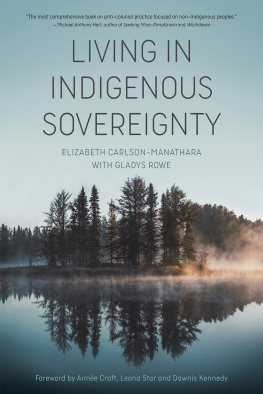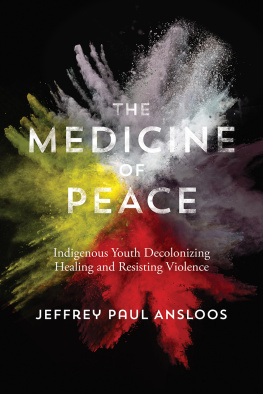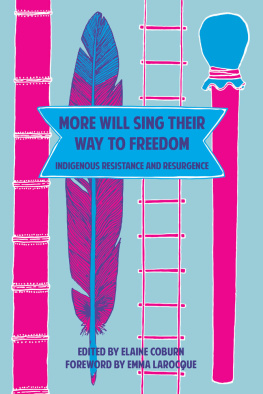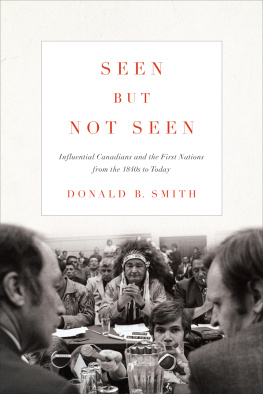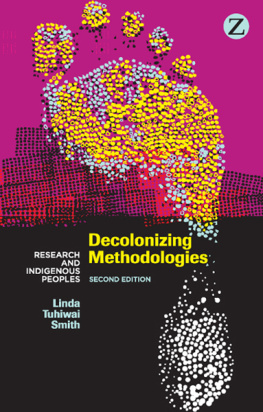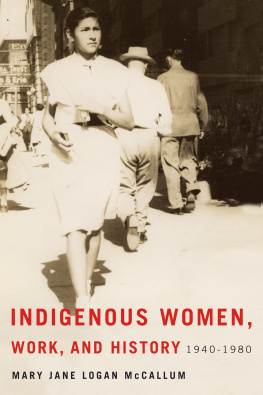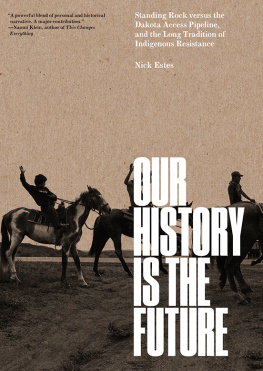Thrush - Indigenous London
Here you can read online Thrush - Indigenous London full text of the book (entire story) in english for free. Download pdf and epub, get meaning, cover and reviews about this ebook. City: England;London;London (England, year: 2017;2016, publisher: Yale University Press, genre: History. Description of the work, (preface) as well as reviews are available. Best literature library LitArk.com created for fans of good reading and offers a wide selection of genres:
Romance novel
Science fiction
Adventure
Detective
Science
History
Home and family
Prose
Art
Politics
Computer
Non-fiction
Religion
Business
Children
Humor
Choose a favorite category and find really read worthwhile books. Enjoy immersion in the world of imagination, feel the emotions of the characters or learn something new for yourself, make an fascinating discovery.

Indigenous London: summary, description and annotation
We offer to read an annotation, description, summary or preface (depends on what the author of the book "Indigenous London" wrote himself). If you haven't found the necessary information about the book — write in the comments, we will try to find it.
Thrush: author's other books
Who wrote Indigenous London? Find out the surname, the name of the author of the book and a list of all author's works by series.
Indigenous London — read online for free the complete book (whole text) full work
Below is the text of the book, divided by pages. System saving the place of the last page read, allows you to conveniently read the book "Indigenous London" online for free, without having to search again every time where you left off. Put a bookmark, and you can go to the page where you finished reading at any time.
Font size:
Interval:
Bookmark:
Indigenous London
THE HENRY ROE CLOUD SERIES ON AMERICAN INDIANS AND MODERNITY
Named in honor of the pioneering Winnebago educational reformer and first known American Indian graduate of Yale College, Henry Roe Cloud (class of 1910), this series showcases emergent and leading scholarship in the field of American Indian Studies. The series draws upon multiple disciplinary perspectives and organizes them around the place of Native Americans in the development of American and European modernity, emphasizing the shared, relational ties between indigenous and Euro-American societies. It seeks to broaden current historic, literary, and cultural approaches to American Studies by foregrounding the fraught but generative sites of inquiry provided by the study of indigenous communities.
Series Editors
NED BLACKHAWK
Professor of History and American Studies, Yale University
KATE W. SHANLEY
Native American Studies, University of Montana

Native Travelers at the Heart of Empire
Coll Thrush

Published with assistance from the Mary Cady Tew Memorial Fund.
Copyright 2016 by Yale University.
All rights reserved.
This book may not be reproduced, in whole or in part, including illustrations, in any form (beyond that copying permitted by Sections 107 and 108 of the U.S. Copyright Law and except by reviewers for the public press), without written permission from the publishers.
Yale University Press books may be purchased in quantity for educational, business, or promotional use. For information, please e-mail (U.K. office).
Set in Fournier MT type by Integrated Publishing Solutions.
Printed in the United States of America.
ISBN 978-0-300-20630-2
Library of Congress Control Number: 2016933934
A catalogue record for this book is available from the British Library.
This paper meets the requirements of ANSI/NISO Z39.48-1992 (Permanence of Paper).
10 9 8 7 6 5 4 3 2 1
In memory of those who did not return
It is in the nature of the city to encompass everything.
Peter Ackroyd, London: The Biography, 2001
This book has its origins in a conversation with my former husband, a Londoner by birth, back in 2007. My first book, Native Seattle: Histories from the Crossing-Over Place, had just been published, and was receiving good press. But London always called. Every time Id been there, Id wondered why I hadnt chosen British history as my field of expertise; the city is a powerfully alluring place and text. So when Simon half-jokingly asked, Why dont you write a book like Native Seattle about London, so you could go there on your research grants? I at first laughed. Who was I, after all, to write about London? But within about five minutes, I realized, Thats it. Thats the next book. What would it be like to take the central concept of Native Seattlereframing the history of a city through Indigenous experienceto the center of empire? That is the project here, so my first acknowledgment is to Simon Martin.
My second acknowledgment is that I write from occupied territory. With the exception of several sojourns in London and elsewhere, the vast majority of this book was produced in Vancouver, which stands on Indigenous land. More specifically, the University of British Columbia (UBC) is a guest of the Musqueam Nation, which has inhabited this space for thousands of years, since time immemorial. I wish to honor the graciousness and hospitality that I, like many of my colleagues, have received in this, their traditional, ancestral and unceded territory.
I also want to acknowledge my own embeddedness in this story. For me, London is a place of ancestry. My forebears, at least on one side of my family, called the city home. Some appear in genealogical records from the sixteenth century, others emigrated from there to the Jamestown Colony at the beginning of the seventeenth century, and still others were married at St. Martin-in-the-Fields in the eighteenth century. In that, like in writing from Indigenous territory, I myself am entangled in the history herein. This has always informed my relationship with the city, so I acknowledge that place and its people in addition to the place where most of the book was written.
It is out of this history, and the recognition of my inherent settler privilege, that Indigenous Londons intellectual and political agendas arise. This book is not about giving voice to Indigenous peoplethey already had (and have) it. Nor is it about making spacethey already were making (and continue to make) it. Instead, it is a project primarily concerned with the kinds of projects outlined by Mori scholar and activist Linda Tuhiwai Smith. In her canonical work Decolonizing Methodologies, Smith sets out twenty-five kinds of research initiatives that can serve the interests of Indigenous peoples and communities. No single work can do all twenty-five. But Indigenous London, I think, at least partially satisfies Smiths call to Indigenize history by centering landscapes, images, languages, themes, metaphors and stories from the broader Indigenous world. I also have endeavored to practice what she calls decolonizing reading. As Smith describes, such reading is a way to locate a different sort of origin story, the origins of imperial policies and practices, the origins of the imperial visions, the origins of ideas and values. Those creation stories were often born in the crucible of the empires capital.
At the same time, a project on the scale of this book simply cannot meet the expectations for community-engaged research that Smith and others call for and which have become the norm in much of the field of Indigenous studies. In an ideal world, I would have spent great amounts of time working in descendant communities, being directed by those communities own research initiatives, and developing relationships that might lead to other projects. But when a book covers more than five hundred years and engages the history of some forty distinct Indigenous peoples, such deep engagement is impossible. Doing ethical Indigenous research and doing global Indigenous history are, necessarily, at odds with each other. My response to this problem has been to rely on the good graces and outstanding scholarship of friends and colleagues, many with expertise on, with, and/or from within the communities whose stories appear in this book and on the time periods with which I was concerned. Without their insights, I would have made some rather embarrassing mistakes, and the end result would be a much inferior work. And so I wish to thank Margery Fee, Josh Reid, Kelly McDonough, Lisa Brooks, Heather Miyano Kopelson, Mary Fuller, Kelly Wisecup, Jenny Pulsipher, Paul Irish, Grisham Langton, J. Khaulani Kauanui, Marie Alohalani Brown, Kuualoha Hoomanuwanui, Jacob Pollock, Jenny Thigpen, Alice Te Punga Somerville, Alyssa Mt. Pleasant, Brendan Hokowhitu, David Gaertner, Lynne Fitzhugh, Boyd Cothran, Laura Peers, and Joe Genetin-Pilawa, among others too numerous to name here. I also wish to thank the individuals that I interviewed and spoke with for the final chapter of the book: Peter Morin, Esther Jessop, and Maia Nuku. Jace Weaver and Daniel Heath Justice warrant special thanks for their support all along the way.
No academic project is ever done entirely by the person whose name appears on the cover, so I also want to express my gratitude to the many undergraduate and graduate students who have worked for me as research assistants over the years. Meredith McInnis, Reina Mistry, Adair Harper, Jennifer Robinson, Eric Wright, Geoff Bil, Laura Madokoro, Clara Wong, and Mark Werner each contributed to the project in crucial ways. I also wish to share my deep thanks to my colleagues and friends with whom I had regular writing dates: Carla Nappi, Thomas Stingl, Hugh Leschot, and Laura Ishiguro.
Next pageFont size:
Interval:
Bookmark:
Similar books «Indigenous London»
Look at similar books to Indigenous London. We have selected literature similar in name and meaning in the hope of providing readers with more options to find new, interesting, not yet read works.
Discussion, reviews of the book Indigenous London and just readers' own opinions. Leave your comments, write what you think about the work, its meaning or the main characters. Specify what exactly you liked and what you didn't like, and why you think so.

